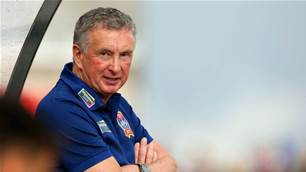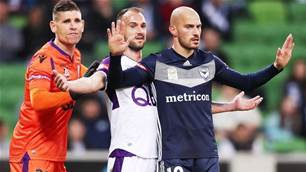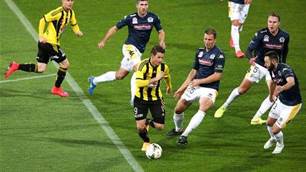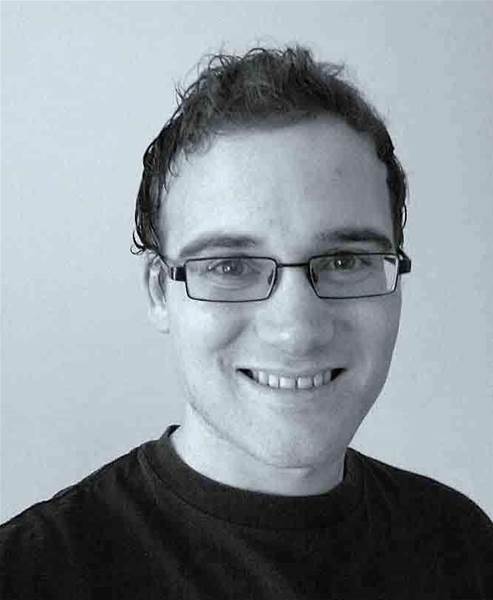Perth Glory are trying to redefine how A-League teams interact with state leagues
Inglewood United is a Western Australian state league premier division club with a proud history. Formed in 1952 by the Ukrainian ex-pat community, the club formerly known as Inglewood Kiev has league, cup, and night series trophies to its name, and a proud player list that once included footballers like young Australian star Nikita Rukavytsya and Glory great Bobby Despotovski. Yet in recent times the WA footballing community has been rife with rumours of a takeover by none other than A-League side Perth Glory, who have been eyeing the club’s home ground at 6PR Stadium with a view to a possible future training and administration base.
After I contacted the club however, Perth’s CEO Paul Kelly moved swiftly to dispel rumours of a takeover, explaining that Glory recognised Inglewood as a club with a proud heritage, and far from taking them over they would instead be interested in setting up a joint venture with them going forward. Kelly explained that whilst discussions were ongoing with Inglewood about the exact nature of the plan – with the emphasis clearly on discussions, with no agreements having been made – Glory had a clear vision of what they needed to develop off the park whilst Ian Ferguson attempted to win them games on it.
As Kelly himself admitted, the Perth team has sorely been lacking in local WA talent in the 20 – 27 age bracket, which has led to eastern states players being lured across on inflated salaries and extended contracts, causing strain on the salary cap and grievances amongst supporters. The club has long wanted to develop a local pool of talent, believing that the existing players in the WA State League are not quite capable of a season of 27 games at A-League standard; at least not without intensive training and development. Furthermore, with players like Liam Miller and Shane Smeltz in the first team squad, it’s difficult to see a state league signing playing more than a handful of games all season. When I mentioned the NTC program, Kelly rejected it as a useful tool for the club – saying that whilst it provided a good program for youngsters aged 15 and above, it did not meet the club’s needs so much as the FFA’s. Even Gareth Naven’s Glory youth team consisting of players aged seventeen or eighteen was not yet A-League ready. Instead, the club desire something to enable these youngsters to make the step up to the A-League quicker, and to provide a year-round professional environment that nurtures and educates them as footballers.
It is here that a relationship with Inglewood United comes in. In return for investment in the club, Glory would like to have a state league squad of which 50% of players will be Perth Glory youth team members, giving them year-round exposure to football and professional development. The bulk of the other half of the squad would then be made up of potential trialists for the Glory’s A-League team, ideally from the WA state league – though Kelly makes it clear that they won’t be playing for big salaries, they’ll instead be playing for a shot at the big time and training in a professional environment, with all the coaching, nutrition and physical work that this entails. Any leftover spots would likely be used for Glory first-teamers recovering from injury or otherwise needing off-season development work. The Inglewood reserves side would also be involved, with younger Glory youth players getting game time here along with sign-ups from the existing Inglewood recruitment and youth programs. Kelly was keen to stress to me, and to the presenters of the Hour of Glory radio show (podcasts available here), that the change at Inglewood would be gradual – the club have no intention of throwing out every man and child on the club’s playing list and replacing them with their own; instead they expect to phase things in over a period of time.
The other main benefits in this relationship concern the facilities at 6PR Stadium. For a start, the Glory would invest in bringing the pitch up to the standard required for A-League sides to train on. This would then provide an ideal training base for the Glory senior side, saving the club money and giving Inglewood a pitch that would be the envy of the rest of the league. It’s worth noting that the Glory’s Youth and Women’s teams already play at the stadium, and would also benefit from the upgrade. Then there are the buildings at the stadium. Kelly, a former Football West board member, is keen to see the WA administrative body and the state’s A-League representative working together; possibly out of the same offices; a ‘home of football’ in WA if you like. Whilst this is hardly something that will be constructed overnight, the existing Inglewood facilities would provide Glory with a club for its members, a bar and canteen, and excellent space for BBQs and social events. Again, all of this will require some investment from the Perth team for upgrades and maintenance, but as the CEO points out, the club are willing to invest in things that give them tangible benefits and long-term solutions.
The proposal would also provide a structured development path for coaches as well as players. There are local WA coaches itching for a chance to develop their credentials, and already Glory have people like Michael Garcia and Bobby Despotovski working in community coaching programs training kids as young as seven in a professional environment. There would potentially be the need for a director of football to oversee the whole youth setup, and with several teams lining up in Inglewood colours plenty of open slots to fill with coaching and support staff.
So there are clearly a lot of benefits for both Perth Glory and Inglewood United in this proposal. But what about the rest of the WA state league? To get a player’s perspective I asked Perth SC’s James Isaia, who this year trialled with Glory, for his opinion.
“I think the setup could be very rewarding for both state league players and the Glory. Training in a full-time environment will only improve players in all aspects; their fitness, sharpness, touch and overall understanding of the game would be much better as a whole. It would probably also separate the state league guys that genuinely want to play the game at the highest level possible from the ones that are in it for a quick buck.
It’s a good idea mixing the state leaguers and the Glory youth, but it would probably need the clubs being compensated somehow if their players moved to Glory’s new setup. I know here at Perth SC they encourage guys to push on to the next level and beyond, and won't stand in the way of any players that are given the opportunity. Just look at Todd Howarth, Nikita and Tando Velaphi who have all come through Perth and gone on to professional careers in the A-League. If all clubs have the same mindset then it would be great.”
But while players like Isaia may like the idea, it’s not guaranteed to go down as well with their paymasters; the state league clubs and their presidents. In all likelihood, there will be a fair bit of opposition to the idea of Glory picking one club and investing in it, whilst others are left to fend for themselves and potentially look to head off their own players jumping ship. Then there’s the issue of the Glory youth players, who currently play for their own clubs in the Football West Premier League. If Glory does go down their proposed route, will these players have to be transferred for some kind of compensation? Most importantly, what happens if a club misses out on the finals because of this new Inglewood side dominating the league with their professional coaching, nutrition, and cashed-up facilities?
Personally, I think this is a great move by Glory. Not only does it show some long-needed foresight and long-term planning from the club, but it will help bring an increased focus to the state league, and raise the general level of play. It will challenge existing top teams like Perth SC, Balcatta and Western Knights to compete even harder and get one over the big boys. It firmly brings Glory into the community and begins to provide a pathway for the youngsters that they’re already training in their development programs – perhaps you are coached by Bobby as an eight year old, then you return for more Glory programs each year thereafter whilst playing for your local junior club. By the time you’re fifteen years old, perhaps Kenny Lowe has a spot for you in the NTC program. At seventeen, you’re joining the Inglewood United reserves and starting to play against guys twice your age. This continues when you make the first team – and all of a sudden you’re invited to play for Glory in the youth league the next year. A couple of years hard work with football played all year round, and maybe – just maybe – you find yourself with an A-League contract and a career in the professional game. What's more, because of your exposure to bigger bodies and older heads at youth level, you're not as intimidated when a thirty year old opponent starts to get physical.
Of course, not everybody will walk that dream-like path. But it’s important that the path is there in the first place; and the plans that Glory makes now are the foundations of youth academies and talented young WA guys (and girls) playing national league football in the future. In the meantime, Perth will have a hard sell on their hands to convince the rest of the WA state league community that this is a good thing for the local game; but for this author at least, it’s certainly a product worth selling.
Related Articles

Newcastle Jets 0 Perth Glory 2: Player Ratings

Melbourne Victory v Perth Glory player ratings













